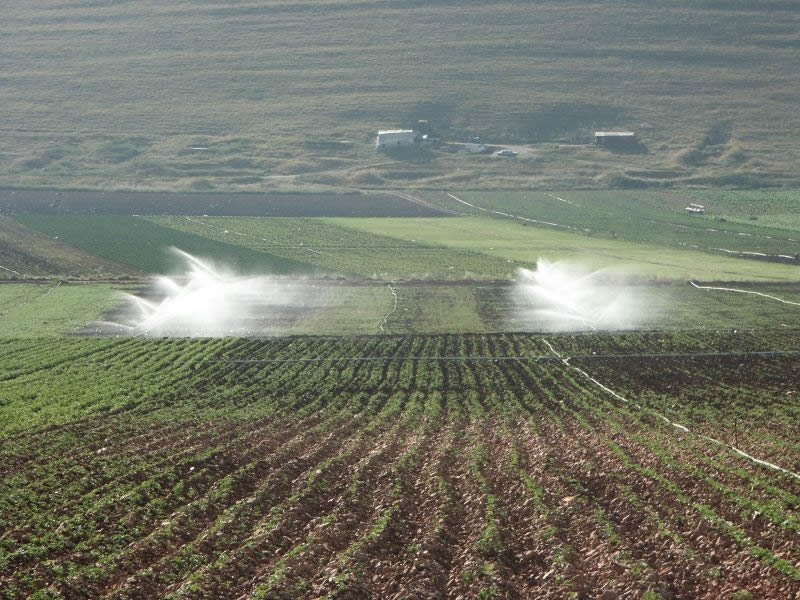By Alaa Shahine, BEIRUT (Reuters) - Foreign Secretary Jack Straw urged Syria on Wednesday to cooperate with a U.N. inquiry into the assassination of former Lebanese Prime Minister Rafik al-Hariri and respect the sovereignty of its smaller neighbour.Straw made his comments as diplomats said Syria had agreed to allow U.N. investigators to interview its foreign minister over the killing but was still considering a request for a meeting with President Bashar al-Assad.
"We urge and continue to urge Syria to cooperate fully with those (U.N.) resolutions in particular with the United Nations investigation into the assassination," Straw said at a joint news conference with Lebanese Prime Minister Fouad Siniora."What we want to see is the government of Syria ... meeting its international obligations ... including the full recognition of the Lebanon as a sovereign, independent state."Straw was the most senior British official to visit Lebanon since Hariri's assassination in February.The killing sparked weeks of street protests that forced Syria to bow to international pressure to withdraw its troops from Lebanon in April, ending a three-decade military presence and years of political domination.
 CGGL Staff Local Media 01/05/2006 Beirut, January 5: A syndicated columnist reported in an opinion piece published today in the Beirut Daily Star and partly carried in Arabic by other Beirut daily newspapers that Walid Jumblatt told him in a telephone interview, when asked what he wanted from America: "You came to Iraq & you can do the same thing in Syria." The piece was written by David Ignatius, who opened up by referring to gangster movies. He spoke first of the television interview by former Syrian VP Abdel Halim Khaddam, whom he called an old mafia don and a turncoat, then turned his attention to Jumblatt.
CGGL Staff Local Media 01/05/2006 Beirut, January 5: A syndicated columnist reported in an opinion piece published today in the Beirut Daily Star and partly carried in Arabic by other Beirut daily newspapers that Walid Jumblatt told him in a telephone interview, when asked what he wanted from America: "You came to Iraq & you can do the same thing in Syria." The piece was written by David Ignatius, who opened up by referring to gangster movies. He spoke first of the television interview by former Syrian VP Abdel Halim Khaddam, whom he called an old mafia don and a turncoat, then turned his attention to Jumblatt.
To understand the latest turns of the screw in Syria and Lebanon, Ignatius wrote, I spoke by telephone yesterday with Walid Jumblatt, the leader of Lebanon's Druze community and something of a warlord himself. Ignatius added: The Druze leader is holed up in his ancestral fortress of Moukhtara, in the Chouf Mountains. Like other Lebanese I spoke with this week, he fears a deadly new attack by the Syrians that would attempt to trigger sectarian conflict in Lebanon -- and take the heat off Damascus. Jumblatt argues that the only stable outcome will be regime change in Syria -- a "Milosevic solution" that will bring Assad to justice through the United Nations.
 BEIRUT, 2 January (IRIN) - After a steady decrease in the number of landmine victims since the withdrawal of Israeli troops from southern Lebanon in 2000, last year witnessed a sudden resurgence of cases. In December alone, three girls were injured by an unexploded cluster bomb in the south of the country, leading one to have her leg amputated. A foreign worker also had to have a leg amputated after stepping on a landmine at a construction site in Beirut. "We have 21 survivors and five killed this year," Brigadier General Salim Raad, director of the National De-mining Office, established in 1998, said. "The numbers have almost doubled in comparison to 2004." According to Raad, poverty is the main reason behind the increase in cases.
BEIRUT, 2 January (IRIN) - After a steady decrease in the number of landmine victims since the withdrawal of Israeli troops from southern Lebanon in 2000, last year witnessed a sudden resurgence of cases. In December alone, three girls were injured by an unexploded cluster bomb in the south of the country, leading one to have her leg amputated. A foreign worker also had to have a leg amputated after stepping on a landmine at a construction site in Beirut. "We have 21 survivors and five killed this year," Brigadier General Salim Raad, director of the National De-mining Office, established in 1998, said. "The numbers have almost doubled in comparison to 2004." According to Raad, poverty is the main reason behind the increase in cases.
Abdel Wahab Badrakhan, Dar al Hayat, Is al-Zirqawi in Lebanon now? Statements on the Internet websites can take him anywhere. Yet, announcing that his organization is responsible for launching missiles from South Lebanon toward Israeli settlements is a clear message to the Americans rather than the Israelis.Guess who benefits from instigating such a message?Could it be Saddam Hussein, for instance, or the Iraqi resistance, which is striving to extend its struggle to Palestine through Lebanon? Of course not. Could it be "Hezbollah" or some Palestinian groups present in Lebanon, especially "the People's Front - General Command"? The answer is also no, because these organizations cannot solely call in "Al Qaeda", welcome it, and bear its burdens. As such, if al-Zirqawi really arrived to Lebanon, the party that led him to Iraq led him to Lebanon, i.e. Syria and Iran.
It is most likely that the terrorist organization is not yet present in Lebanon; however, it is not unlikely that it has advocates therein. Did these advocates grow to have the potential to hold missiles and transpierce South Lebanon to launch them on Israel? If this is the case, the situation should alarm the Lebanese army first, and then Hezbollah. In other words, it should alarm the Lebanese government with its rift between Syrian proponents and opposers. Such transpiercing is unjustified except for mere destructive motives and has nothing to do with smart "resistance" that the Lebanese supported -despite the divergence in points of views - and still refuse to undermine its importance. As long as these suspicions swirled around the "General Command" with respect to launching the missiles, this organization has become, following the report of "al-Qaeda", either "innocent" or on the contrary linked to "al-Qaeda". In both cases, its status must be clarified, since this is not the first suspicion that it has been subjected to.
Khazen History


Historical Feature:
Churches and Monasteries of the Khazen family

St. Anthony of Padua Church in Ballouneh
Mar Abda Church in Bakaatit Kanaan
Saint Michael Church in Bkaatouta
Saint Therese Church in Qolayaat
Saint Simeon Stylites (مار سمعان العامودي) Church In Ajaltoun
Virgin Mary Church (سيدة المعونات) in Sheilé
Assumption of Mary Church in Ballouneh
1 - The sword of the Maronite Prince
2 - LES KHAZEN CONSULS DE FRANCE
3 - LES MARONITES & LES KHAZEN
4 - LES MAAN & LES KHAZEN
5 - ORIGINE DE LA FAMILLE
Population Movements to Keserwan - The Khazens and The Maans
ما جاء عن الثورة في المقاطعة الكسروانية
ثورة أهالي كسروان على المشايخ الخوازنة وأسبابها
Origins of the "Prince of Maronite" Title
Growing diversity: the Khazin sheiks and the clergy in the first decades of the 18th century
Historical Members:
Barbar Beik El Khazen [English]
Patriach Toubia Kaiss El Khazen(Biography & Life Part1 Part2) (Arabic)
Patriach Youssef Dargham El Khazen (Cont'd)
Cheikh Bishara Jafal El Khazen
Patriarch Youssef Raji El Khazen
The Martyrs Cheikh Philippe & Cheikh Farid El Khazen
Cheikh Nawfal El Khazen (Consul De France)
Cheikh Hossun El Khazen (Consul De France)
Cheikh Abou-Nawfal El Khazen (Consul De France)
Cheikh Francis Abee Nader & his son Yousef
Cheikh Abou-Kanso El Khazen (Consul De France)
Cheikh Abou Nader El Khazen
Cheikh Chafic El Khazen
Cheikh Keserwan El Khazen
Cheikh Serhal El Khazen [English]
Cheikh Rafiq El Khazen [English]
Cheikh Hanna El Khazen
Cheikha Arzi El Khazen
Marie El Khazen